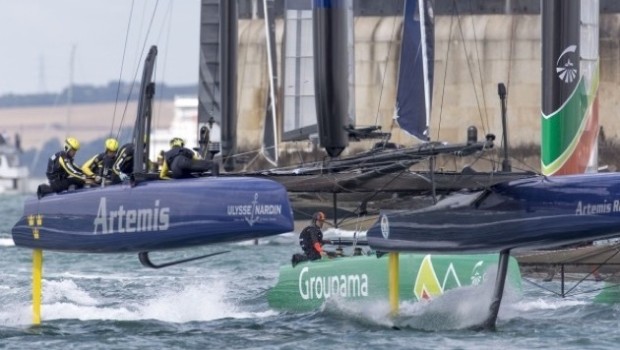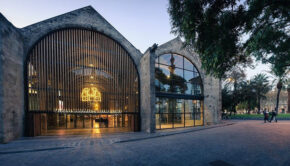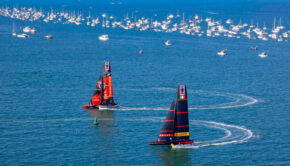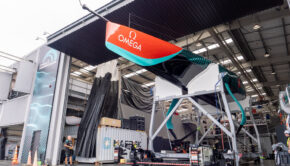How the America’s Cup teaches rivalry in business
Published on August 27th, 2015
By Laura Singleton, Imperial College London
Researchers in London have won an Academy of Management award for a study that reveals how imitation can help businesses stay ahead of their rivals. Dr. Dmitry Sharapov, Assistant Professor, Department of Innovation and Entrepreneurship and Dr. Jan-Michael Ross, Assistant Professor, Department of Management, both from the Business School of the Imperial College London, won the Distinguished Paper Award, for a study that uses data from the America’s Cup to explore when imitation strategies can help business leaders stay ahead of multiple competitors.
The researchers used data from fleet sailing races of the America’s Cup World Series 2011-2013 to show how managers can make better business decisions in challenging environments. To mark the next stage of the 2015 America’s World Cup World Series, which opens today in Gothenburg, Sweden, this interview is presented.
Broadly speaking, what can businesses learn from the America’s Cup?
DS: Like many other sports, the America’s Cup provides various learning opportunities. The parallels between business and sport are strong: both involve selecting the right people to form teams, and getting them to develop their leadership and motivational skills, and learning how to allocate resources effectively.
Just like business, the captain and crew need to make good strategic and tactical decisions while rivals are trying to get ahead of them. The America’s Cup is particularly interesting because the participating teams are faced with a competition that involves both sport and technological development.
This means that crews have to both improve the design of their yacht, and then launch it and compete in the race. In a similar way, businesses develop or acquire technologies, design their products, and launch them on to the market in the hope that their products are better selling than their competitors.
JMR: Generally, businesses can learn from these crews how to effectively cope with the various challenges they face. For example, consider the learning journey of Team Oracle, the American team who won the 34th America’s cup in 2013. They were eight races behind the challenger, Team New Zealand, and they came from behind to win the Cup by nine races to eight. What a comeback! Leadership, team selection, use of technologies, and decision-making skills in highly dynamic environments were very effectively implemented to achieve their win.
What can businesses learn from competitive interactions in sailing competitions?
DS: The decisions that these teams are making are similar to those facing businesses. What makes the analogy of sailing so fascinating is that these teams, similar to businesses developing and launching products, have to make decisions under different types of uncertainty.









 We’ll keep your information safe.
We’ll keep your information safe.